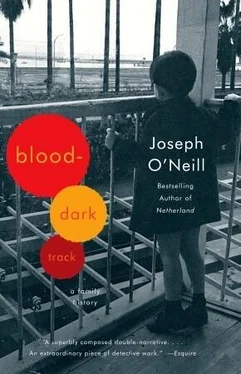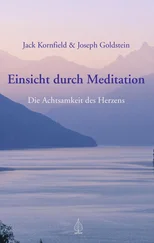The storm-blown, starving travellers landed, their mouths watering at the sight of all this wealth of food, but directly they seized a bread-fruit from the nearest tree, it passed from their hands into a shadow, and everything they met with had the same evanescent quality.… At length they met with some of the inhabitants. Like everything else in this strange country, though they appeared to be solid, they, too, were shades, and the living men passed through their forms as if there was nothing there. The shades spoke, however, and told them that this was Bulotu, the Place of Departed Souls, and they were the Tangaloa of old time, and the Souls of Eiki, their departed Chiefs. They said that no solid food, such as they needed, could be got here, for all that grew was shadow-food, the Food of the Gods, for their shadowy sustenance.…
But Bulotu is a bourne from which no traveller may ever return for long. It is the Land of the Dead, and its air, however deliciously scented, is the air of Death, not fitted for mortal lungs. In the course of a few days after reaching Tonga, all these travellers died, and being Chiefs, went permanently to Bulotu; not as a punishment for their temerity, but as the natural consequence of once breathing that fatal atmosphere.
— Admiral Boyle Townshend Somerville, Will Mariner
A dana, the fourth biggest city in Turkey, sits on the inland rim of a sweltering delta largely given over to the cultivation of cotton. In 1942, the counter-espionage agent Sir Patrick Coghill found Adana ‘a deadly, absolutely one-horse town for all of its 80,000 inhabitants’, and forty years afterwards, with its population approaching one million, Adana was still looked on — at least, from the maritime, relatively cosmopolitan vantage-point of Mersin — as tedious, insular, and provincial; which was perhaps why my own interaction with the place was limited to flying into and out of its small, stifling airport. In recent times, these adverse perceptions have been challenged. Although to drive into the city is still to penetrate a spattering of industrial buildings and dreary, dimly-lit blocks of housing, with its theatre and its resident orchestra and its archaeological and ethnographical museums and its university hospital and its increasingly cherished antiquity — Hittites, Persians, Greeks and Romans were settled here, the last-mentioned building a twenty-one-arch bridge that still carries traffic across the river Seyhan — Adana is developing another image. We are now invited to see a vigorous and self-confident city that, although devout as ever — a new mosque has the tallest minaret in Turkey and a capacity close to 30,000 — is not afraid to look the west in the eye or, even, to glance at the face of its pre-Kemalist past. One aspect of this modified vision, I discovered one night in late August 1998 was the restoration of Adana’s rather magnificent three-storey station-house to its original glory. Its stones and brick had been cleaned and its red roof tiles renewed, and in the tree-lined plaza at the front of the station a shiny, vividly painted steam engine was marooned on a length of track. The installation functioned as spectacle and technological homage — who does not admire steam engines? — but, like any relic, it also gave off a spray of history which for most people no doubt fell as fine, inconsequential vapour.
A railroad first arrived in Adana back in 1886, on the completion of the short but valuable Mersin — Adana line, which, like most of the few disjointed railways then in existence in Turkey, was wholly owned by British capitalists. In 1908, the Mersin — Adana line officially became a branch line of the Deutsche Bank-financed Baghdad Railway, which was seen by Germany’s rival powers, themselves engaged since the Crimean War in the exploitation and manipulation of the disintegrating, systemically out-dated and finally debt-crippled Ottoman Empire, as one of the most sinister features of German expansionism: for the BBB (Berlin — Byzantium— Baghdad) promised German-controlled railways from the Baltic to the Persian Gulf and German growth in Mesopotamia, Syria and Arabia. For the German public, the appeal of the drang nach Osten was entrancing. German traders ranging from travelling salesmen to infrastructural contractors followed the banking syndicates into the Ottoman Empire, and by 1898, when the Kaiser visited Istanbul, the finance and trade of the Empire, which previously had been practically exclusive to France and Great Britain, was predominantly in German hands. In order to fund the Railway — regarded by Sultan Abdul Hamid II as a crucial military transport link between the great cities of Istanbul, Izmir, Aleppo, Damascus, Beirut, Mosul and Baghdad — the Ottoman government issued guarantees which committed it to paying investors huge sums; the result was German control over the Ottoman treasury and powerful political influence over the Sultan and, after his removal from power in 1908, the Young Turk government.
Although British influence in the Near East went back a long way — in Macbeth , Act I Scene iii, there is a reference to a sailor who’s ‘to Aleppo gone’ — it was France, as the dominant regional power, that had the most to lose from the growth of German influence. In imitation of the French imperial method, German missions and schools sprang up in the Near East to promote knowledge and appreciation of das Deutschum — the values and character of German civilization, German history and, most importantly, the German language. In the words of one Dr Rohrbach, an influential commentator of the time,
No lasting and secure cultural influences are possible without the connecting link of language. The intelligent and progressive young men of Turkey should have an abundant opportunity to learn German.… We can give the Turks an impression of our civilisation and a desire to become familiar with it only when we teach them our language and thus open the door for them to all of our cultural possessions.
The epitome of the intelligent and progressive young man of Turkey was, of course, the linguistically gifted sixteen-year-old who, in September 1916, presented himself to his German superiors for work in the construction of the Berlin — Baghdad Railway, Joseph Dakak.
The station-house at Adana gave way to two relatively humble platforms. In the rafters of the platform roofs, hundreds of swallows had established a colony. The birds fidgeted and cleaned their feathers and looked out of nest-holes and darted around in the warm air, while below them sprawling families played out scenes of good-tempered restlessness. The women, every one wearing a headscarf, kept an eye on the children, often grabbing them and giving them ferocious and unselfconscious kisses. The men, cigarettes constantly ablaze, sat with their legs daintily crossed, the toe of the dangling foot pointed towards the ground so as not impolitely to expose the sole of the shoe. They wore pyjama-like trousers, knitted hats, cloth caps, baggy short-sleeved shirts (the buttons undone to reveal a white vest and an undergrowth of chest hair), faded blue or grey or brown suits. I was the only westernized traveller, Turkish or foreign, to be seen.
At four in the morning, a blinding, otherworldly light, accompanied by a terrible blast of a horn, advanced out of the western darkness. The Taurus Express had arrived. There was a brief crush as passengers with cases and packages descended from the carriages. Then I boarded the train. It was packed with overnight travellers struggling for sleep, and the odour of feet was distinctive. There was no restaurant car, and First Class consisted of claustrophobic six-seat compartments that appeared marginally less comfortable than the open seating in the Second Class carriages.
Читать дальше
Конец ознакомительного отрывка
Купить книгу












